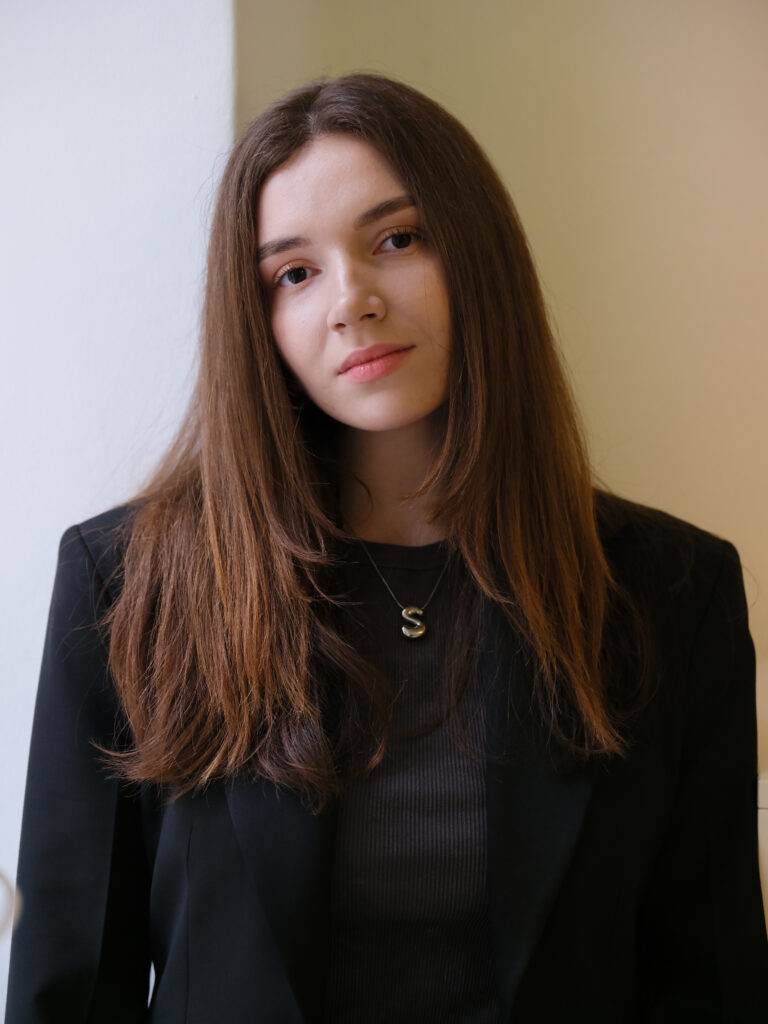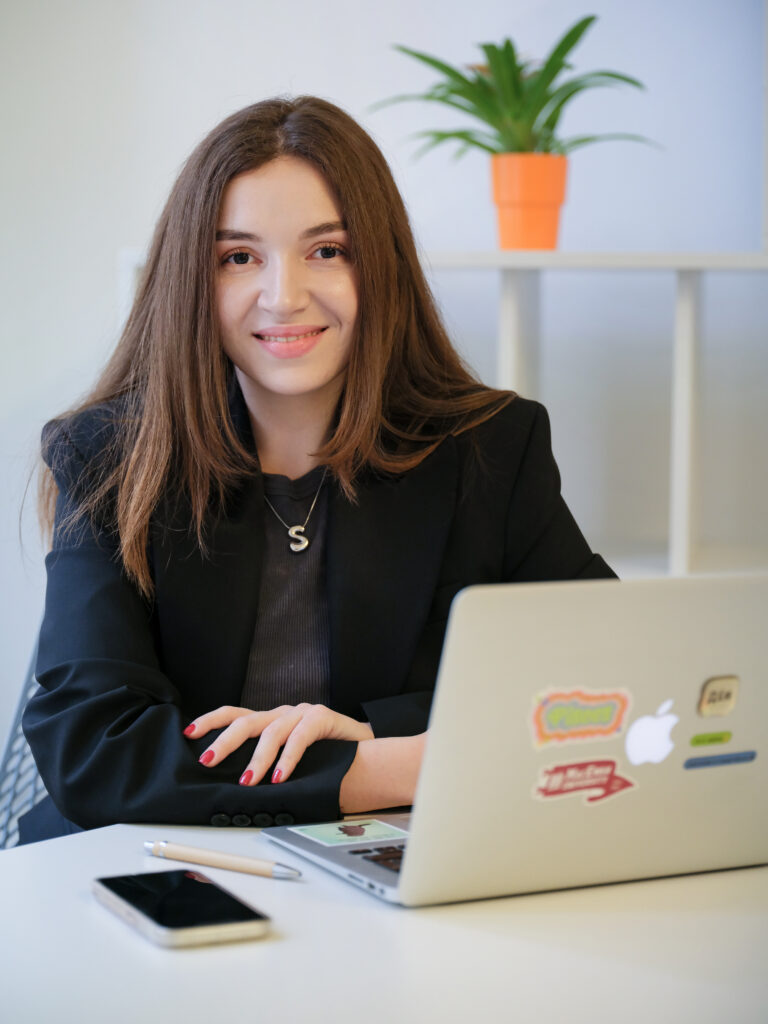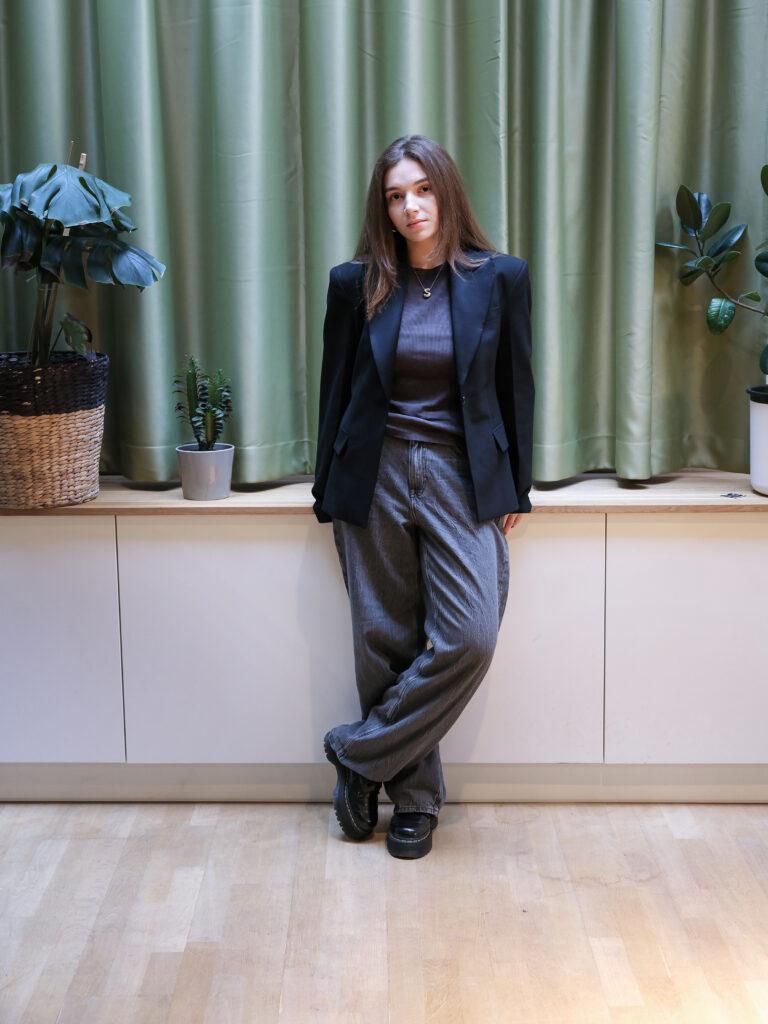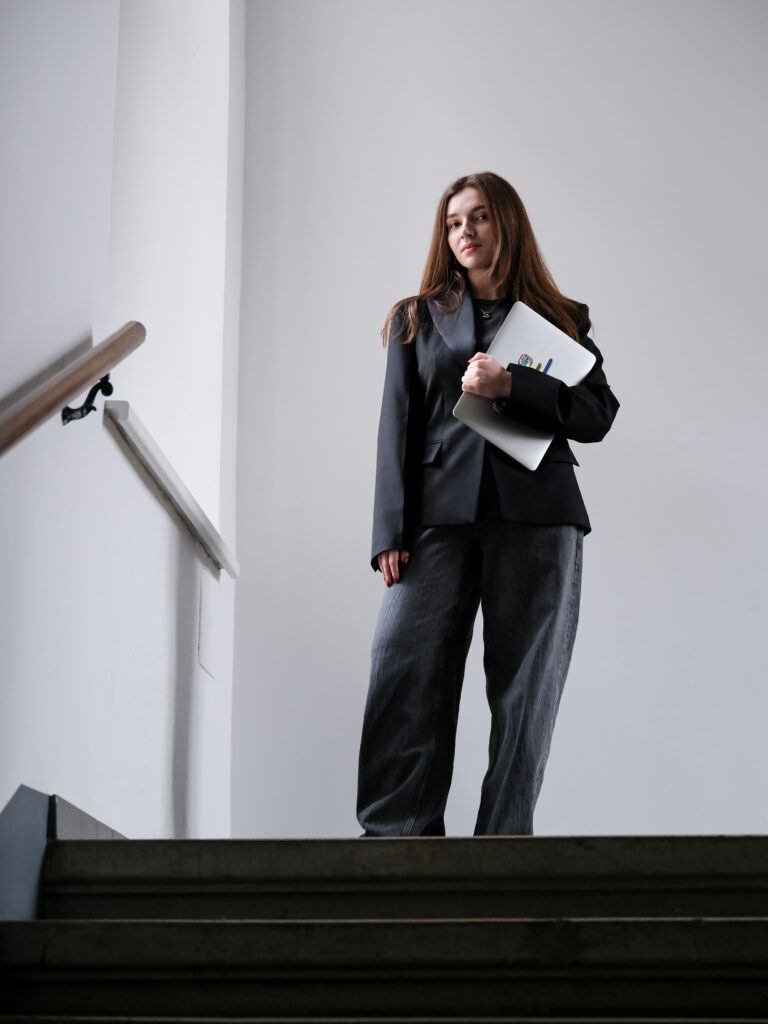
4 February 2025
Sabina Mamedova: “Integration doesn’t require perfection”
Sabina Mamedova, Professional Integration HUB 2.0 Program Participant (Impact Hub Vienna)
Intro
- Age: 23 years old
- City in Ukraine where you lived before the full-scale invasion (forced relocation): Kyiv
- Specialization: Project Management in NGOs
PROFESSIONAL BACKGROUND
Before the full-scale invasion, I was pursuing a master’s degree in Public Administration at the National University of Kyiv-Mohyla Academy. I started my professional journey as an Assistant Project Manager at the non-profit organization in Kyiv. While my long-term goal was to contribute to educational development and reform in Ukraine, the full-scale invasion disrupted these plans. I have since focused on strengthening my expertise in project management to ensure I can make meaningful contributions in the future. As of now, I have 3 years of experience in managing projects. In general, NGOs in Ukraine, particularly in Kyiv and larger cities, are in a relatively better position than other sectors. Despite challenges, such as a shrinking job market and difficulties in finding skilled professionals, many NGOs implement many projects to help Ukrainian society during full-scale war.
FORCED EMIGRATION
The war found me in Chernivtsi. At the time, I was closely following the news and developments in Ukraine and became concerned that Kyiv, where I lived, would likely be targeted. To ensure my safety, I temporarily stayed with my parents in Chernivtsi. However, the life I had carefully built in Kyiv was disrupted overnight. The uncertainty and challenges made it impossible for me to return and rebuild in the same way. Austria was the second country I moved to after the full-scale invasion. Initially, I accepted an academic shelter opportunity in Canada offered to students from NaUKMA University. After a year of living and studying there, I chose Vienna for its safety, proximity to Ukraine, and cultural familiarity. Being from Chernivtsi, a city with strong historical ties to Austria, I felt a natural connection to the culture and atmosphere of Vienna, which made it easier for me to adapt and feel more at home.

LIFE IN AUSTRIA
The biggest challenge for me in Austria has been the language. I never expected to live in a German-speaking country and become an immigrant, so learning German has been a complex and ongoing process. Another significant challenge has been finding a community. It’s hard to meet people and build relationships without local connections like a job or school. I also believed I needed to speak fluent German to interact with anyone, from a barista to someone asking for directions. Over time, I realized this wasn’t true. Integration doesn’t require perfection, and I’ve felt welcomed regardless of my language skills.
Small rituals have helped me stay grounded: visiting a favorite coffee shop, exploring museums, or discovering bookstores. Vienna’s beauty reminds me how blessed I am to be here.
A key obstacle in my professional development has been the lack of resources and guidance for finding opportunities in Austria. While I could search for basic information online, I didn’t know where to find niche job boards or who to ask for advice. Submitting CVs to various organizations in Vienna resulted in piles of rejection letters. This experience highlighted the importance of learning German, refining my CV and building a professional network to navigate employment opportunities effectively.

Professional Integration HUB
My main expectations from the internship were connecting with people, feeling more integrated into Vienna life, and gaining a sense of belonging. The team at Impact Hub Vienna, including my supervisor, provided incredible support from the beginning. They checked in regularly to ensure my personal goals aligned with theirs, creating a collaborative and welcoming environment.
Throughout the internship, I participated in numerous events organized by Impact Hub Vienna. These events provided opportunities to meet new people, share my opinions, and contribute ideas shaped by my experience in Ukraine. It helped me feel more connected, both personally and professionally.
If I were to describe the Professional Integration HUB in one phrase, I would call it “a bridge to new beginnings.” It offered hope and opportunities, helping me rebuild and reshape my path. In just three months, my perspective on living in Austria was transformed, giving me the courage to create a step-by-step future here. The most valuable lesson I learned during my internship is not to be afraid to speak up and share my ideas, even when self-doubt creeps in. I realized that sharing feedback, no matter how small or insignificant it may seem, can bring valuable insights.
I also feel incredibly fortunate to have found a friend through this internship. My supervisor, Darya, who is also Ukrainian, became not only a mentor but also a close friend. We immediately clicked, sharing not just Excel spreadsheets but common values and interests.

One of the highlights of my internship was a work trip to Graz with Darya, where we attended an impact-focused conference. Over two days, we participated in meetings, connected with investors and startups, and explored social enterprise challenges. This experience deepened my understanding of the startup ecosystem and allowed me to actively contribute to representing Impact Hub Vienna.
One thing I admire about Austrian work culture is the appreciation for rest and balance. Unlike my previous experience in Ukraine, Austrians prioritize their well-being and sustainable productivity.
PLANS AFTER PARTICIPATING IN THE PROGRAM
The internship at Impact Hub Vienna showed me that improving inclusive and special education in Ukraine doesn’t rely solely on government institutions. Social enterprises and startups can be key in offering innovative solutions for people with disabilities. This experience inspired me to envision collaboration between government, businesses, and NGOs to address the needs of veterans and individuals with disabilities.
On a more practical level, I deepened my project management skills and learned to adapt to multicultural work environments, where priorities and workflows differ significantly. This experience has been invaluable, and I remain committed to applying these lessons to help rebuild Ukraine.
Photos: Valerie Loudon